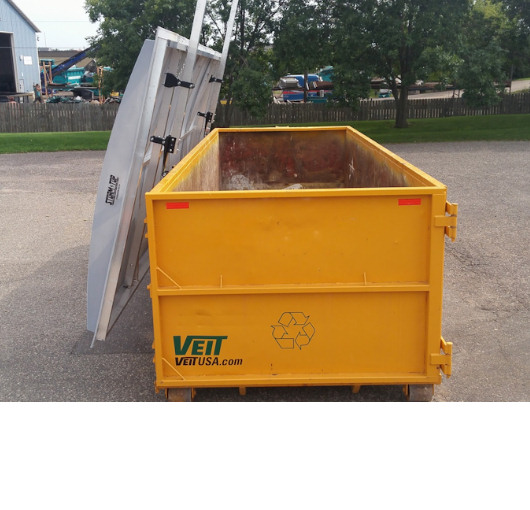
Overview
The guidelines on the waste container used were not really strict and this leads to the successful running of a business. Businesses started taking a nose dive on February 16, 2017, when the EPA released new guideline for Construction General Permit (CGP), these rules where stricter compared to what companies were used to. Undoubtedly the rules affected lots of businesses who make use of waste containers in offices and job sites. The new rules point out the crackdown on how containers should be prevented from precipitation that can result in stormwater pollution. This new rule has replaced the 2012 CGP.
The new rules stipulated that waste container should be closed at all time, before and after use, at the end of every day. Business must make provision to replace or get a new container once the waste vessel lid is either missing or broken. In the meantime, a method of preventing the release of pollutants to the environment should be provided in curtailing pollution. These strict rules are a result of the continuous fight against pollution through stormwater runoff. The new EPA guideline has fines on companies and businesses who fail to adhere to the rules strictly. An amount ranging from $2,500 to $25,000 per day, will be placed as fine on businesses who fail to stick to the new rule.
Secure Protection Against Stormwater Runoff
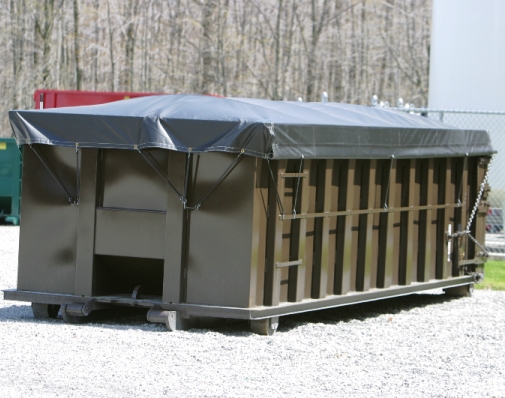
What Causes Stormwater Runoff?
Over the years a close study has been done on stormwater runoff and the EPA have discovered various causes of stormwater runoff and pollution troubles. Waste Management is one of the causes of stormwater runoff. Before now, the EPA rule mandated industrial facility to use waste management as a form of their daily processes. It is of great importance that companies take up their responsibility in reducing stormwater runoff. The guide for Industrial Operators on Developing Stormwater Pollution Plan when waste materials contaminate stormwater is that it must be safe in a restricted environment. Dumpsters (see dumpster covers here)that are not covered are the most common compliance challenge that affects operator when it comes to SWPPP. Leakage is caused if waste containers are open or not sealed. Stormwater runoff can be prevented by containment of waste.
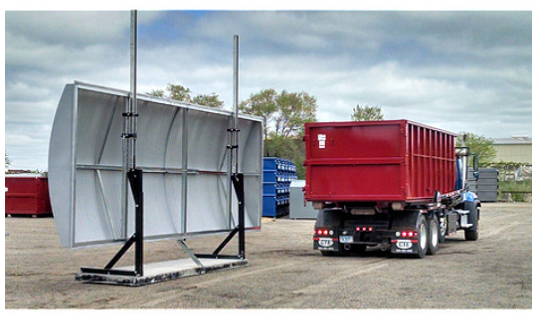
Stormwater runoff is dangerous to the environment; water from rain or snowmelt that flows over the ground picks up industrial pollutants from sites like roads, building, parking space, and construction site etc. the polluted water can get into a local water source such as rivers streams creeks etc. as well as being dumped in a sewer system.
Federal, state and local government pass rules, on companies and businesses, on how dumpsters must be covered. The content of stormwater runoff includes chemicals like nitrogen, litter, phosphorus, grease, and other forms of elements that cause harm to the environment. The new guideline requires companies and businesses to develop and maintain Stormwater Pollution Prevention Plan (SWPPP) which corresponds with National Pollutant Discharge Elimination System (NPDES) industrial stormwater permit.
Protection From The Elements
Winter Rated
ALCO covers provide low temperature protection for the coldest climates.
UV Rated
ALCO covers provide UV protection for the sunniest hottest climates.
Wind Rated
ALCO covers provide extreme wind protection for the widest climates.
Rain Rated
ALCO covers provide rain protection for the wettest climates.
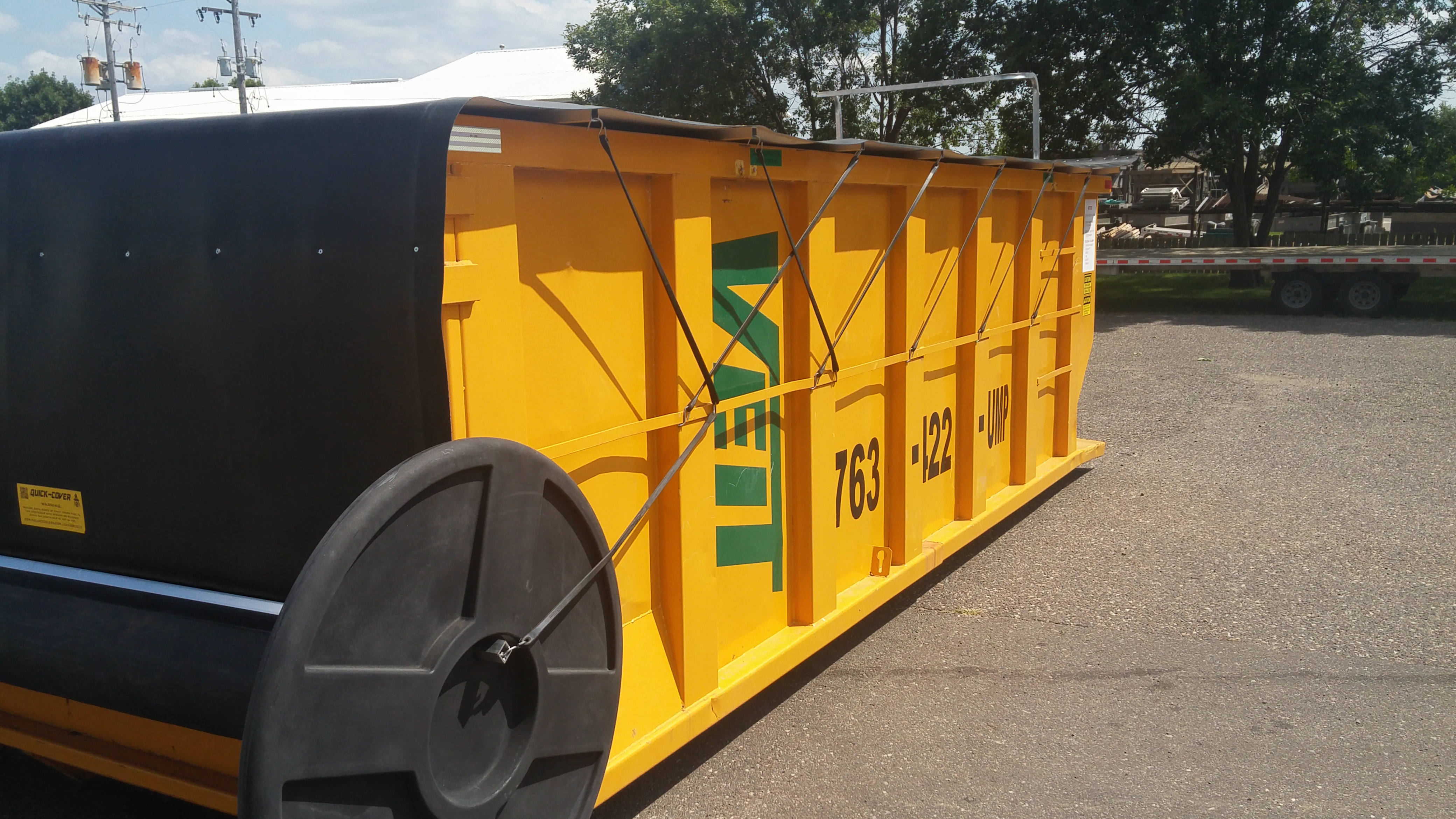
Solving The Problem
ALCO dumpster covers are the solution to major of the challenges we face in a construction site, companies, cities, home, and offices that use waste container. This cover offers a simple and effective solution for reducing stormwater leakage to the ground, and shield companies from noncompliance and fines. Another advantage of the ALCO dumpster cover is its ability to prevent rainwater and snowmelt from reaching into a dumpster. ALCO dumpster covers operate in a high-level procedure, although never was there strict enforcement of previous regulations before the new CGP guideline by EPA. This new rules are strict and enforced on businesses, the need for an effective cover of dumpster is of importance.
Companies and businesses now use tarps and bow system as an alternative to cover their dumpsters. This alternative method is undependable since the materials used are likely to sag or tear. Materials like tarps are not resistant to freezing and will become weighty, strong and difficult to use under heavy snow storm. Tarps might not hold water under a serious downpour. Issues of this nature will cause noncompliance with the new rules of CGP. ALCO dumpsters panel are made of 90% recycled high molecular weight polyethylene and are 100% recyclable. They can be fastened to the bottom of each container with nylon that has inflammable properties. With ALCO dumpster cover, there is no need for modification and hardware installation.
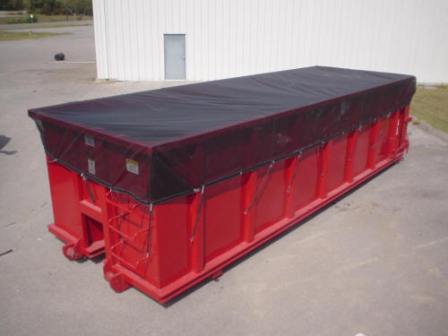
Keeping Fewer Fees and No Fine
With the use of ALCO dumpster cover, it will tremendously help with no exposure certification for exclusion from National Pollutant Discharge Elimination System (NPDES), stormwater permit and SWPPP certification (ISO14001). Concerns from industries about the need to cover open-air dumpster in other to be in compliance with stormwater regulations has increased, they have been notified of the looming increase in the restriction of stormwater regulations. For businesses and companies with the intention of keeping in compliance and reducing their fines and fees, ALCO dumpster cover is the solution.
Companies who use ALCO dumpster covers save money by reducing tipping fees and fines. Water-soaked waste and dumpsters with ice are more expensive to dispose of due to its weigh. They can be used to store valuable recyclables thereby preventing them from thieves. Illegal dumping, dumpster divers are reduced using the ALCO dumpster cover. This can lead to noncompliance with the new rules and regulation change of CGP released by the EPA. ALCO dumpster covers offer Affordable Solutions to help businesses and companies protect their environment and also avert them from going against the new rules and staying in compliance with all levels of government regulations. The cost for disposal and liability is lowered to a minimal rate.
